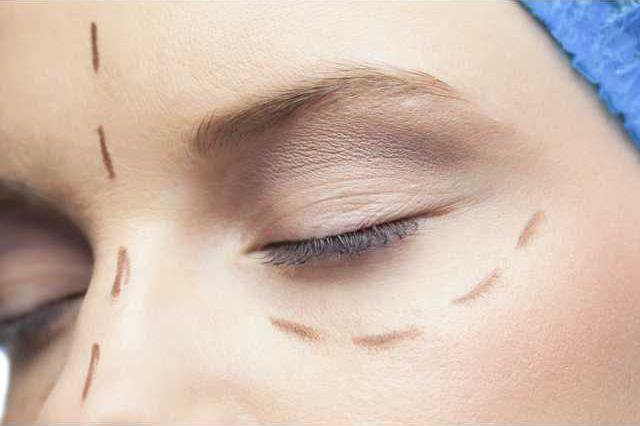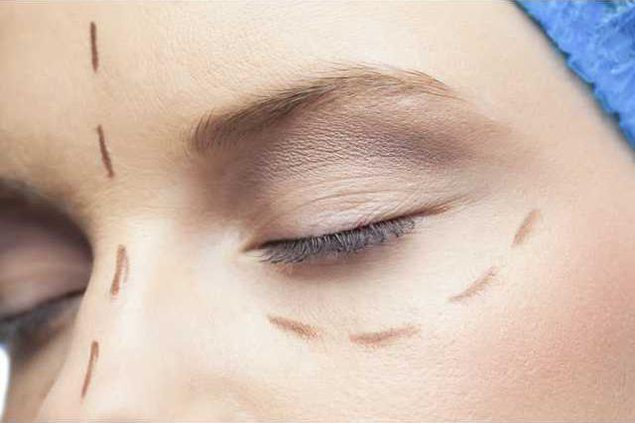Going under the knife for a younger-looking face does more than alter a person's own body image, according to a new study published this week in the journal JAMA Facial Plastic Surgery. It also changes how an individual's personality is perceived by others.
"Facial plastic surgery changes the perception of patients by those around them," wrote the researchers. "Traditionally, these interventions have focused on improvements in youthful appearance, but this study illuminates the other dimensions of a patient's facial profile that are influenced by facial rejuvenation surgery," namely, likability, social skills, attractiveness and femininity.
Study participants were shown a mix of pictures of women before and after plastic surgery and asked to "make guesses about (a woman's) personality based on the photos," Time reported. Procedures like face-lifts, eyebrow-lifts and neck-lifts were found to make a woman appear more likable and socially adept, but they did not significantly impact ratings of trustworthiness, aggressiveness, extraversion or risk-seeking.
As Pacific Standard reported in its coverage of the research, the results confirmed what most people already knew, at least subconsciously: appearance plays a large role in people's assessments of each other.
"The study provides additional evidence that we make snap judgments about people's personalities based on facial features," by taking upturned corners of the mouth to mean a person is happy and likable or that baggy lower eyelids represent exhaustion and grumpiness, for example, the article noted.
Michael Reilly, one of the study's co-authors and an assistant professor of facial reconstructive surgery at the Georgetown University School of Medicine, told The Washington Post that he pursued the research out of a sense of obligation to his patients.
"I really wanted to make sure that when I was offering cosmetic surgery to patients, that I was actually doing something good for them," he said, noting that part of his job is making patients aware of the wide variety of risks that accompany plastic surgery procedures.
Because the study did not investigate traits like wisdom, which might be associated with older age and, therefore, wrinkles, it remains unclear what aspects of perceived personality are lost in the pursuit of a younger-looking appearance, Time noted.
"We still have a long way to go before we can figure out exactly what we're doing to ourselves when we go under the knife for cosmetic procedures," Time reported. "We're changing our outward appearance, yes, but how that affects our inner selves and how others perceive us isn't and likely won't ever be entirely clear."
"Facial plastic surgery changes the perception of patients by those around them," wrote the researchers. "Traditionally, these interventions have focused on improvements in youthful appearance, but this study illuminates the other dimensions of a patient's facial profile that are influenced by facial rejuvenation surgery," namely, likability, social skills, attractiveness and femininity.
Study participants were shown a mix of pictures of women before and after plastic surgery and asked to "make guesses about (a woman's) personality based on the photos," Time reported. Procedures like face-lifts, eyebrow-lifts and neck-lifts were found to make a woman appear more likable and socially adept, but they did not significantly impact ratings of trustworthiness, aggressiveness, extraversion or risk-seeking.
As Pacific Standard reported in its coverage of the research, the results confirmed what most people already knew, at least subconsciously: appearance plays a large role in people's assessments of each other.
"The study provides additional evidence that we make snap judgments about people's personalities based on facial features," by taking upturned corners of the mouth to mean a person is happy and likable or that baggy lower eyelids represent exhaustion and grumpiness, for example, the article noted.
Michael Reilly, one of the study's co-authors and an assistant professor of facial reconstructive surgery at the Georgetown University School of Medicine, told The Washington Post that he pursued the research out of a sense of obligation to his patients.
"I really wanted to make sure that when I was offering cosmetic surgery to patients, that I was actually doing something good for them," he said, noting that part of his job is making patients aware of the wide variety of risks that accompany plastic surgery procedures.
Because the study did not investigate traits like wisdom, which might be associated with older age and, therefore, wrinkles, it remains unclear what aspects of perceived personality are lost in the pursuit of a younger-looking appearance, Time noted.
"We still have a long way to go before we can figure out exactly what we're doing to ourselves when we go under the knife for cosmetic procedures," Time reported. "We're changing our outward appearance, yes, but how that affects our inner selves and how others perceive us isn't and likely won't ever be entirely clear."








